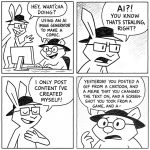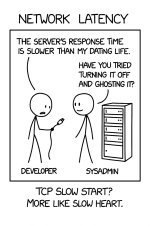This is more a cultural than a political question, but somehow it does not seem to belong in the GB.
There was a time when poetry mattered. A lot of people outside academia studied, memorized and recited poetry. Poets could be celebrities, like Rudyard Kipling, e.e. cummings, Robert Frost, Emily Dickinson. (Though Dickinson was obscure in her own lifetime.) Poets could even be legendary, semi-divine figures, like Orpheus or Homer.
Poetry even seemed to be one of the markers of a cultural period:
Poetry now seems to be a dying art apart from song lyrics. Who is now writing poetry that future generations of English students will study and discuss? What is being recited at open-mic poetry slams that anyone but that night's audience will ever hear or read?
There was a time when poetry mattered. A lot of people outside academia studied, memorized and recited poetry. Poets could be celebrities, like Rudyard Kipling, e.e. cummings, Robert Frost, Emily Dickinson. (Though Dickinson was obscure in her own lifetime.) Poets could even be legendary, semi-divine figures, like Orpheus or Homer.
Poetry even seemed to be one of the markers of a cultural period:
-- George Orwell, "The Rediscovery of Europe," 1942.Now in fact these abrupt transitions don't happen, either in politics, manners or literature. Each age lives on into the next — it must do so, because there are innumerable human lives spanning every gap. And yet there are such things as periods. We feel our own age to be deeply different from, for instance, the early Victorian period, and an eighteenth-century sceptic like Gibbon would have felt himself to be among savages if you had suddenly thrust him into the Middle Ages. Every now and again something happens — no doubt it's ultimately traceable to changes in industrial technique, though the connexion isn't always obvious — and the whole spirit and tempo of life changes, and people acquire a new outlook which reflects itself in their political behaviour, their manners, their architecture, their literature and everything else. No one could write a poem like Gray's ‘Elegy in a Country Churchyard’ today, for instance, and no one could have written Shakespeare's lyrics in the age of Gray. These things belong in different periods. And though, of course, those black lines across the page of history are an illusion, there are times when the transition is quite rapid, sometimes rapid enough for it to be possible to give it a fairly accurate date. One can say without grossly over-simplifying, ‘About such and such a year, such and such a style of literature began.’ If I were asked for the starting-point modern literature — and the fact that we still call it ‘modern’ shows that this particular period isn't finished yet — I should put it at 1917, the year in which T. S. Eliot published his poem ‘Prufrock’. At any rate that date isn't more than five years out. It is certain that about the end of the last war the literary climate changed, the typical writer came to be quite a different person, and the best books of the subsequent period seemed to exist in a different world from the best books of only four or five years before.
To illustrate what I mean, I ask you to compare in your mind two poems, which haven't any connexion with one another, but which will do for purposes of comparison because each is entirely typical of its period. Compare, for instance, one of Eliot's characteristic earlier poems with a poem of Rupert Brooke, who was, I should say, the most admired English poet in the years before 1914. Perhaps the most representative of Brooke's poems are his patriotic ones, written in the early days of the war. A good one is the sonnet beginning
Now read side by side with this one of Eliots's Sweeney poems; for example, ‘Sweeney among the Nightingales’ — you know,“If I should die, think only this of me:
‘That there's some corner of a foreign field
That is for ever England”
As I say, these poems have no connexion in theme or anything else, but it's possible in a way to compare them, because each is representative of its own time and each seemed a good poem when it was written. The second still seems a good poem now.‘The circles of the stormy moon
Slide westward toward the River Plate’
Poetry now seems to be a dying art apart from song lyrics. Who is now writing poetry that future generations of English students will study and discuss? What is being recited at open-mic poetry slams that anyone but that night's audience will ever hear or read?

